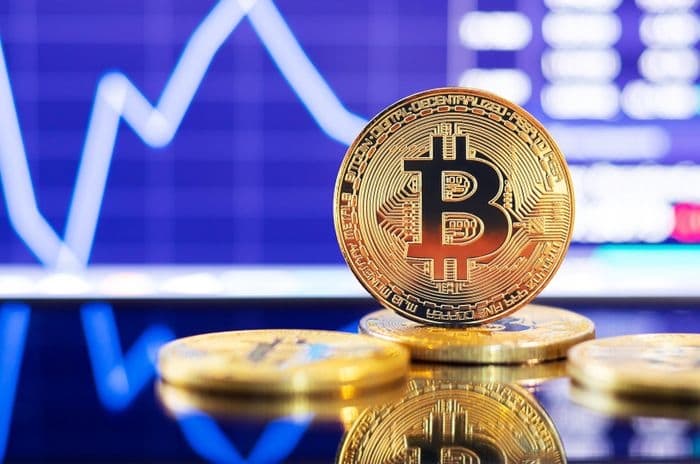Home > Money > News > Backlash against bitcoin as banks begin to ban credit card purchases
Backlash against bitcoin as banks begin to ban credit card purchases
Lloyds Banking Group and Virgin Money are banning customers from buying bitcoin using their credit cards as fears escalate over its falling value and the subsequent risk of customers running into debt.

The move comes after the value of crypto-currency bitcoin fell by more than 50% from the beginning of 2018 to a low of $6,000, which is a huge $13,500 lower than its 2017 high.
This dramatic drop in value follows warnings from a number of governments that they will regulate or ban the digital currency and an advertising ban from Facebook to protect users against crypto-currency ads that "promote financial products and services that are frequently associated with misleading or deceptive promotional practices".
The crypto-currency ban from Lloyds and Virgin is for credit card purchases only, not debit card purchases. This is because the usual repayment delay for credit card purchases leaves customers vulnerable to a bitcoin currency plunge, like the one we've just seen, that would leave them out of pocket and struggling to repay.
Why the backlash?
There are a number of reasons why institutions around the world are beginning to take action against bitcoin and other crypto-currencies, such as Ethereum, Ripple and Litecoin.
The very fact that bitcoin is created and held electronically means it is not owned or controlled by anyone or any institution.
For example, once someone has created bitcoins (through a complex process of solving increasingly difficult algorithms) or purchased them on bitcoin exchanges, payments can be made without any central authority involvement, such as being processed by a bank. The payment exchange is simply from individual to individual.
As there's no central authority monitoring payments, bitcoin transactions tend to be anonymous and very hard to trace, making it very attractive for criminals who wish to hide illegal actions, such as money laundering.
There's also the fact that trading bitcoins by exchanging them for traditional currency is very risky because bitcoin is a volatile currency, as we've seen since the beginning of 2018.
This volatility is exactly why Lloyds and Virgin are concerned about their credit card users running up debts and have subsequently implemented the purchase ban.
And it's not just UK banks that are taking action. In the US, JP Morgan, Bank of America, Citigroup, Capital One and Discover have also banned their credit card users from buying any digital currency.
Fears over the bitcoin bubble are continuing to increase as more and more people, buoyed by bitcoin's continued success in 2017, have bought the currency and inflated its price.
Just last year, the Nobel-prize winning economist Robert Schiller, who famously predicted the housing bubble that led to the global economic crash, warned that bitcoin was the best example of a speculative bubble that he could possibly think of at this point in time.
Schiller has warned that bitcoin's constant upward growth has led many people to believe that the digital currency is unassailable, without necessarily thinking about what might happen when the bubble bursts.
What's next for bitcoin?
Bitcoin looks likely to face an uncertain future because of its clandestine nature: it's hard to regulate, difficult to monitor, used by criminals and potentially economically unstable. It faces an increase in monitoring, censorship and regulation from governments around the world.
For example, reports state that China will block its citizens from accessing websites that sell any crypto-currency, India is also seeking to curb the use of digital currencies, South Korea has implemented a ban on anonymous trading accounts, and lawmakers in the US are now considering regulating all virtual currency trading platforms.
Here at home, the UK Treasury announced at the end of last year that it too plans to regulate the digital currency market to bring it into line with existing anti-terrorism and anti-money laundering legislation.
The recent action taken against bitcoin by Lloyds, Virgin and other credit card providers is just one manifestation of the larger concerns surrounding bitcoin and all other crypto-currencies.
Get insider tips and the latest offers in our newsletter
Get insider tips and the latest offers in our newsletter

We are independent of all of the products and services we compare.

We order our comparison tables by price or feature and never by referral revenue.

We donate at least 5% of our profits to charity, and we aim to be climate positive.
Latest News

26 October 2022
Cost of living showing worrying trends in affordability
16 June 2022
FCA warn lenders on cost of living difficulties


